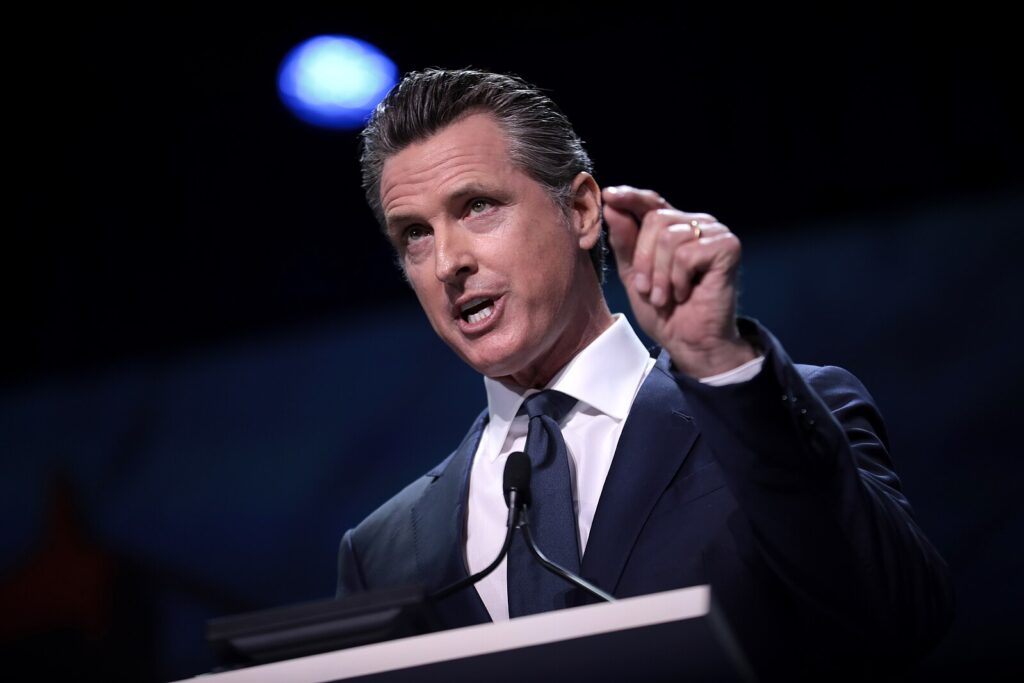The White House sent a document to nine universities on Wednesday, Oct. 1, asking them to commit to the Trump administration’s goals for higher education, according to AP News. Universities who agree to the compact will receive more access to more federal money, including “substantial and meaningful federal grants” and “increased overhead payments.”
In response, California Governor Gavin Newsom warned that any California schools who signed the compact would be cut off financially from the state, including losing Cal Grants, according to ca.gov.
“CALIFORNIA WILL NOT BANKROLL SCHOOLS THAT SELL OUT THEIR STUDENTS, PROFESSORS, RESEARCHERS, AND SURRENDER ACADEMIC FREEDOM,” Newsom’s response read in all caps.
Cal Poly did not receive the document, titled “Compact for Academic Excellence in Higher Education.” The University of Southern California was the only California university to receive the compact.
The compact states that universities are free to hold other values and use other models, but in doing so, those universities would lose federal funding and benefits.
Biology junior Maeve Brady said that Newsom’s response was a good response.
“I think it is a good way to prevent schools from being bullied by the Trump administration,” Brady said.
Civil engineering sophomore Anthony Berg said that the response Newsom put out was an interesting view.
“I think that creates a hostile environment between the state and national legislation and authorities,” Berg said. “I’m not a guy for really conflict, so I don’t think that would probably be the best response to publicly submit but from my readings, as a student, I think a synopsis of a lot of the things the letter said would sound like an ideal school place in theory if they were executed as such.”
However, Berg said that it is not ideal that there are political party undertones in the compact.
“I definitely did notice that there was some ideas that were more aligned with the conservative side of the political spectrum,” Berg said. “I myself don’t really identify with a specific political party so I don’t think it is ideal that a Republican president is kind of rewarding universities for adopting more Republican policies and ideas, however it is kind of their choice if they want to follow this. But it is kind of like you get more money if you do it, so a lot of people would want to do it.”
The compact outlines guidelines for participating universities to follow. This includes objective admissions and faculty hiring that does not take into account race, gender identity, political views, sexual orientation and other identifying characteristics, according to the compact. The university must establish gender based on biology and reproductive ability and have single sex spaces.
“I just feel like that’s kind of pushing or forcing conservative ideals onto universities, and I feel like this is a country with freedom of speech, so I don’t think that should be taken away and hypocritically pushed onto universities,” Graphic communications sophomore Primavera Rosales said in talking about the compact.
The compact also calls for universities to have no more than 15 percent of their undergraduate body be participants in the Student Visa Exchange Program, with no more than five percent of those in the program being from the same country.
“Signatories pledge to select those foreign students on the basis of demonstrably extraordinary talent, rather than on the basis of financial advantage to the university; to screen out students who demonstrate hostility to the United States, its allies, or its values; and to provide instruction in American civics to all foreign students,” the compact read.
Universities must also publish data on admitted versus rejected students and have all applicants take a standardized test, like the SAT or ACT.
“I think that he doesn’t know anything about education and that he shouldn’t be interfering with how schools admit people, how they disperse funds,” Brady said. “Especially with the standardized testing. Standardized testing is so cultural, it depends on your background education and it is just not fair for admission in my opinion.”
Berg said there are things to take away from the letter that are good and bad.
“I think a lot of the things that are not related with any political party, that are just kind of basic things you want to see in education and how people learn, is a lot of the good stuff.”
The compact calls for maintaining a fair marketplace of ideas on campus, where no single ideology dominates.
In their section on financial responsibility, the compact talks about freezing effective tuition rates for five years, eliminating unnecessary administrative staff and refunding tuition to those who drop out during the first academic term.
The compact outlines goals for expanding opportunities for America’s military service members and veterans.
The nine universities are invited to provide feedback before the wording is finalized, according to AP News. Universities are being asked to make a decision by Nov. 21.

